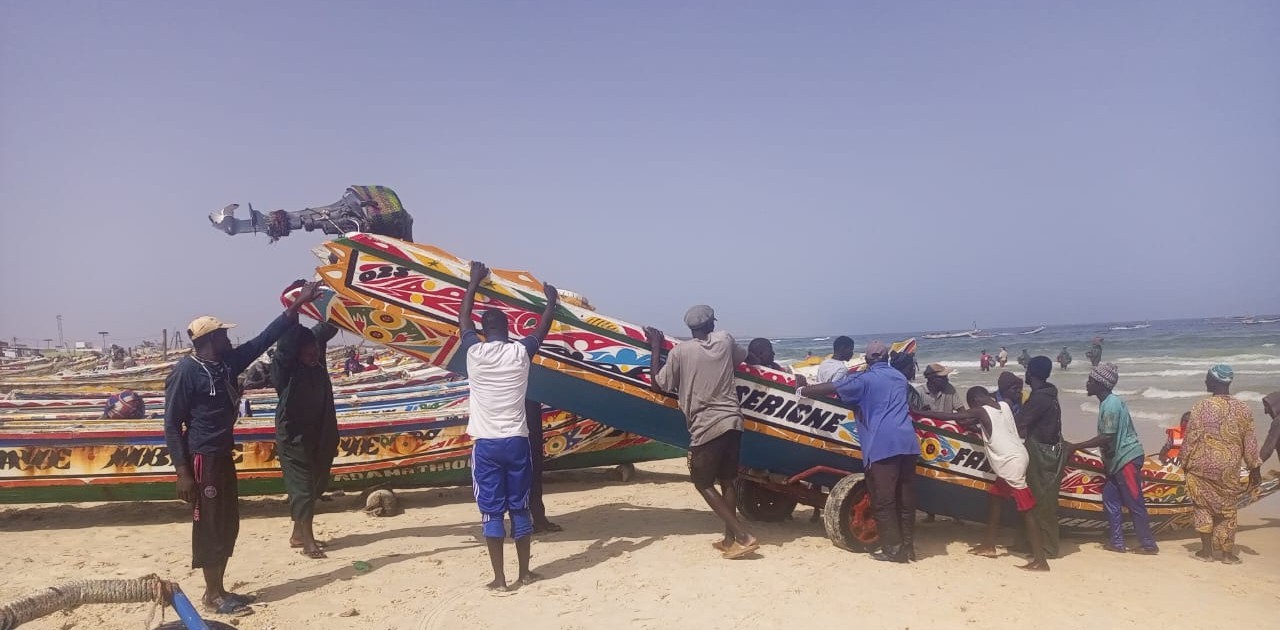
A delegation of representatives of the Atlantic Hospitality Network met in Dakar (Senegal) on May 8 and 9 to reflect on the work being done by this ecclesial network that promotes and coordinates the protection of migrants in several African countries and in Spain.
This workshop was held on the occasion of the V Plenary Assembly of the Regional Episcopal Conference of West Africa (RECOWA/CERAO) that took place from May 5 to 12 with the representation of 17 West African countries.
The aim of the workshop of the Atlantic Hospitality Network on May 8 and 9 was to bring together actors from different dioceses of Africa and Spain to continue working together on this question. The Atlantic Route is known as the migratory path used to reach Europe from the African continent through the Canary Islands. The following countries are involved in this project: Senegal, Cape Verde, Gambia, Guinea Bissau, Guinea Conakry, Mali, Morocco, Mauritania, Western Sahara and Spain.
The Dicastery for Promoting Integral Human Development (DPIHD) has accompanied the Atlantic Hospitality project since its inception. For this reason, four representatives of DPIHD participated in the recent meeting in Dakar: Msgr. Moise Dembele, Mario Almeida, Fr. Sylvester Berinyuy and Andrea Marchesani.
During the 5th Plenary Assembly, a speech on the pastoral care of migrants was delivered on behalf of the Dicastery for Promoting Integral Human Development by the regional coordinator, Mario Almeida.
Accompaniment of the Atlantic Hospitality Network
Bishops and other pastoral agents in the region are increasingly concerned about the extreme dangers of this migratory route, which connects northwest Africa with the Canary Islands or crosses the desert to reach Morocco and the cities of Ceuta and Melilla.
In January 2022 the Dicastery organized an online consultation with the Bishops to promote dialogue and pastoral cooperation in this complex situation.
One of the proposals that emerged from this initial meeting was to create a network of dioceses along the route, which could accompany the journey of those already on the move, those planning to leave and those returning home, with reliable information and, where appropriate, humanitarian services.
A second consultation with the Bishops was organized in May 2024 to present the progress of the network and to understand the new challenges along the Atlantic route. At the same time, virtual meetings were held between the diocesan delegates for migration who were appointed by their respective bishops.
One tangible fruit of the culmination of this work was the publication of a first version of the Atlantic Hospitality Guide, which offers reliable resources to help migrants who choose the Atlantic Route and facilitate access to information and communication while in transit and about the destination countries.
Finally, the desire arose to organize a face-to-face meeting to share experiences and good practices, which became reality at the workshop in Dakar this May 2025.
The workshop was hosted by: Caritas Senegal. Co-organized by: Africa-Europe Network for Human Mobility (RAEMH) and the Spanish Bishops’ Conference (CEE) Sub-Commission for Migration and Human Mobility.
The recent meeting was also attended by representatives of other organizations, such as Manos Unidas, Caritas Española and Caritas Italiana, who may be future partners. In addition, this initiative is supported by the International Catholic Migration Commission (ICMC) and the Migration Working Group of the Symposium of Episcopal Conferences of Africa and Madagascar (SECAM).
The workshop began with the full body of participants sharing their perspective on the challenges and opportunities of this migratory route. With the intent to find points of future common commitment, good practices of the work carried out were exchanged. On the second day, a visit was made to the fishing village of Kayar, a common departure point for migrants, where the participants heard the testimonies of two migrants who returned to Senegal.































